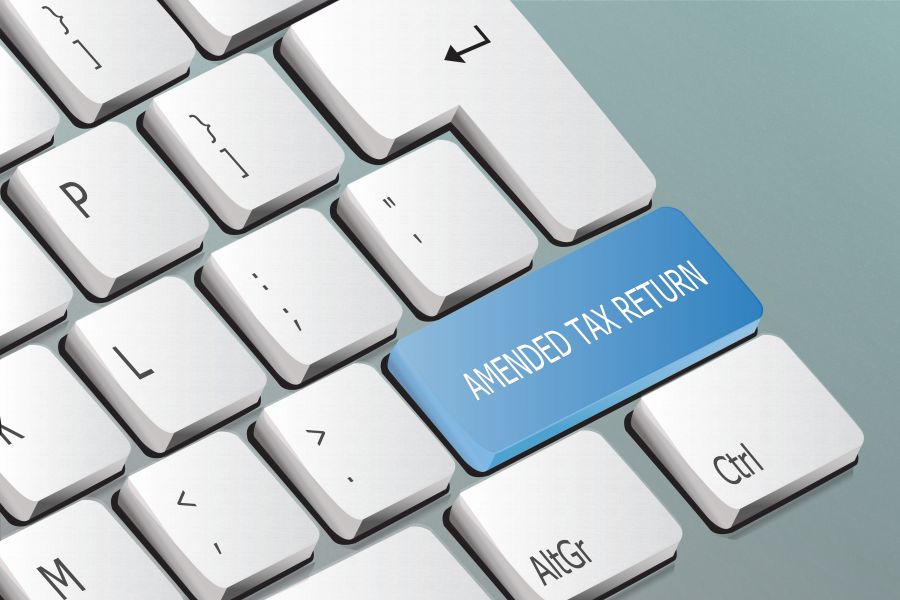If you’re the owner of an incorporated business, you probably know that there’s a tax advantage to taking money out of a C corporation as compensation rather than as dividends. The reason is simple. A corporation can deduct the salaries and bonuses that it pays executives, but not its dividend payments. Therefore, if funds are withdrawn as dividends, they’re taxed twice, once to the corporation and once to the recipient. Money paid out as compensation is taxed only once, to the employee who receives it. However, there’s a limit on how much money you can take out of the corporation this way. Under tax law, compensation can be deducted only to the extent that it’s reasonable. Any unreasonable portion isn’t deductible and, if paid to a...

Most travelers love a deal that extends their budget — whether it’s a cheap flight, discounted hotel room or all-inclusive package tour. Unfortunately, sophisticated scammers are only too happy to profit from bargain hunters. When planning your next trip, be vigilant in avoiding travel voucher scams . . . particularly those selling at a deep discount. Fake that seems real In one common scheme, criminals purchase vouchers from travel companies using stolen credit card numbers, then sell the vouchers online or by phone to would-be travelers. Between the initial purchase and subsequent resale, the travel company is alerted to the fraud. And before the traveler can use the voucher, the company inactivates it, leaving the traveler with a worthless document. Voucher scammers often use email to hook people...
If you own a home, the interest you pay on your home mortgage may provide a tax break. However, many people believe that any interest paid on their home mortgage loans and home equity loans is deductible. Unfortunately, that’s not true. First, keep in mind that you must itemize deductions in order to take advantage of the home mortgage interest deduction. Deduction and limits for “acquisition debt” A personal interest deduction generally isn’t allowed, but one kind of interest that is deductible is interest on mortgage “acquisition debt.” This means debt that’s: 1) secured by your principal home and/or a second home, and 2) incurred in acquiring, constructing or substantially improving the home. You can deduct interest on acquisition debt on up to two qualified residences:...
If you’re a business owner, be aware that a recent tax law extended a credit for hiring individuals from one or more targeted groups. Employers can qualify for a valuable tax credit known as the Work Opportunity Tax Credit (WOTC). The WOTC was set to expire on December 31, 2019. But a new law passed late last year sees WOTC extended through 2020. Generally, an employer is eligible for the credit for qualified wages paid to qualified members of these targeted groups: members of families receiving assistance under the Temporary Assistance for Needy Families program, veterans, ex-felons, designated community residents, vocational rehabilitation referrals, summer youth employees, members of families in the Supplemental Nutritional Assistance Program, qualified Supplemental Security Income recipients, long-term family assistance recipients, and long-term unemployed...
Several major companies have already filed for bankruptcy during the novel coronavirus (COVID-19) crisis and many more large and small businesses are expected to follow suit. Don't get shortchanged by a liquidating business. If you’re a creditor of a company that’s liquidating, it may be challenging to get back what you’re owed. That’s where a solvency opinion can help. An expert determines whether the company could meet its long-term interest and repayment obligations when it made — or didn’t make — payments to creditors. Examining the subject Solvency experts consider many issues when examining a business. But ultimately, the outcome of three tests enable an expert to determine solvency: Balance sheet. At the time of the transaction at issue, did the subject’s asset value exceed its...
As posted to Peak Prosperity.com on 5/17/2020 Trailer (Run Time: 1 min, 47 sec) Creator-provided description: "Back in mid-January, Grant Williams, Mike Maloney, Charles Hugh Smith, Chris Martenson and Adam Taggart sat down for an in-depth discussion on the dangerous distortions to financial markets and the global economy that central bank intervention is causing. That video, titled WTF: What The Fed?! was released soon after the US Federal Reserve had added $200 billion dollars to its balance sheet in Q4 2019. At the time, we worried that so much liquidity being added to the system so quickly could recklessly exacerbate the extreme overvaluations in the markets, and further increase the instability of our over-indebted economy. Little could we have guessed that a global pandemic would soon ensue, one that...
Nearly everyone has heard about the Economic Impact Payment (EIP) that the federal government is sending to folks to help mitigate the effects of the coronavirus (COVID-19) pandemic. The IRS reports that in the first four weeks of the program, 130 million individuals received payments worth more than $200 billion. However, some people are still waiting for a payment. And others received an EIP but it was less than what they were expecting. Here are some answers why this might have happened. Economic Impact Payment Basic Amounts If you’re under a certain adjusted gross income (AGI) threshold, you’re generally eligible for the full $1,200 ($2,400 for married couples filing jointly). In addition, if you have a “qualifying child,” you’re eligible for an additional $500. Here are some of the...
Did you know that PPP loan forgiven expenses aren't deductible? The IRS has issued guidance clarifying that certain deductions aren’t allowed if a business has received a Paycheck Protection Program (PPP) loan. Specifically, an expense isn’t deductible if both: The payment of the expense results in forgiveness of a loan made under the PPP, and The income associated with the forgiveness is excluded from gross income under the Coronavirus Aid, Relief, and Economic Security (CARES) Act. PPP basics The CARES Act allows a recipient of a PPP loan to use the proceeds to pay payroll costs, certain employee healthcare benefits, mortgage interest, rent, utilities and interest on other existing debt obligations. A recipient of a covered loan can receive forgiveness of the loan in an amount equal to...
Earlier this year, the IRS has announced in IR 2020-4 that it had launched the Gig Economy Tax Center on it's website, IRS.gov. The new website provides guidance specifically designed for gig economy workers and businesses, i.e., those people who earn income providing on-demand work, services or goods. Background The gig economy is also known as the sharing, on-demand or access economy. It usually includes businesses that operate through a digital platform, an app or website, to connect people and to provide services to customers. While there are many types of gig economy businesses, ride-sharing (i.e. Uber/Lyft) and home rentals (i.e. AirBNB) are two of the most popular. Often, gig economy activity is through a digital platform like an app or website. IRS summarizes the unique tax aspects of...
The $2.2 trillion Coronavirus Aid, Relief, and Economic Security Act (CARES Act) delivers meaningful tax relief to individuals and businesses. Some of that relief is retroactive, which can affect 2018 and 2019 returns that have already been filed. One retroactive provision can, in some cases, go all the way back to 2013. Here is a summary of the CARES Act retroactive COVID-19 tax relief measures that can potentially benefit you or your business entity after amended returns have been prepared and filed. Taxpayer-friendly Rules for Deducting Net Operating Losses (NOLs) Business activities that generate tax losses can cause you or your business entity to have an NOL for the year. The CARES Act significantly liberalizes the NOL deduction rules and allows NOLs that arise in 2018–2020 to be...
- 1
- 2
- 3
- 4
- 5
- 6
- 7
- 8
- 9
- 10
- 11
- 12
- 13
- 14
- 15
- 16
- 17
- 18
- 19
- 20
- 21
- 22
- 23
- 24
- 25
- 26
- 27
- 28
- 29
- 30
- 31
- 32
- 33
- 34
- 35
- 36
- 37
- 38
- 39
- 40
- 41
- 42
- 43
- 44
- 45
- 46
- 47
- 48
- 49
- 50
- 51
- 52
- 53
- 54
- 55
- 56
- 57
- 58
- 59
- 60
- 61
- 62
- 63
- 64
- 65
- 66
- 67
- 68
- 69
- 70
- 71
- 72
- 73
- 74
- 75
- 76
- 77
- 78
- 79
- 80
- 81
- 82
- 83
- 84
- 85
- 86
- 87
- 88
- 89
- 90
- 91
- 92
- 93
- 94
- 95
- 96
- 97
- 98
- 99
- 100
- 101
- 102
- 103
- 104
- 105
- 106
- 107
- 108
- 109
- 110
- 111
- 112
- 113
- 114
- 115
- 116
- 117
- 118
- 119
- 120
- 121
- 122
- 123
- 124
- 125
- 126
- 127
- 128
- 129
- 130
- 131
- 132
- 133
- 134
- 135
- 136











